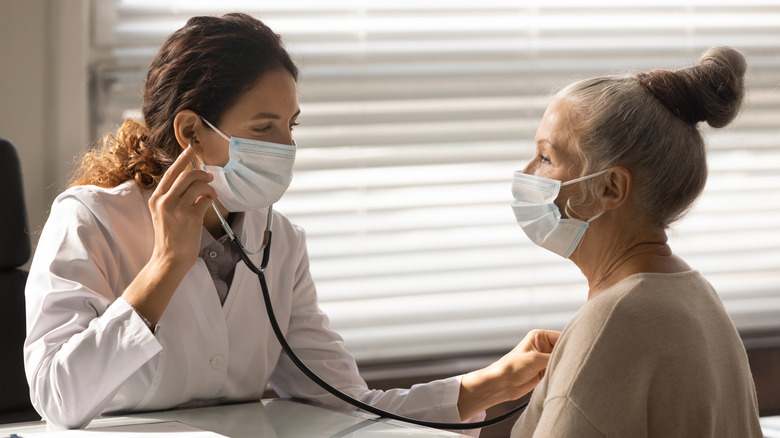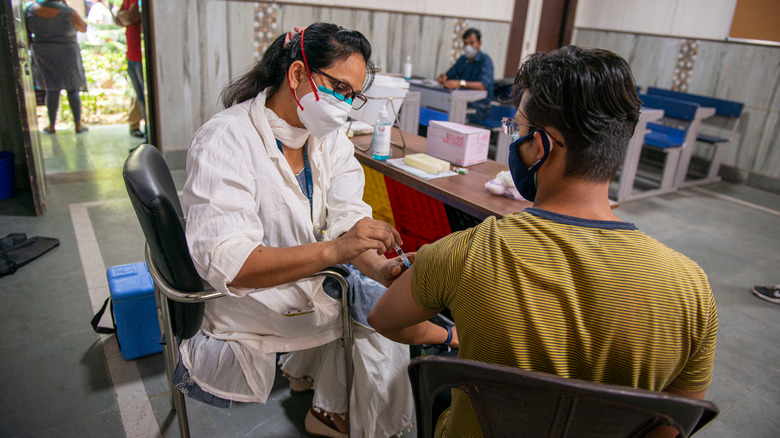Why Your Heart Health May Be At A Higher Risk If You've Had COVID-19
It's become clear over the last two years that COVID-19 causes a variety of health issues in people who have become infected. A recent review of federal data revealed that people who were diagnosed with COVID-19 had a higher risk of heart disease one year after being infected. "I went into this thinking that this is most likely happening in people to start with that have a higher risk of cardiovascular disorders, smokers, people with high BMI, diabetes, but what we found is something different," Ziyad Al-Aly, MD, told WebMD. "It's evident in people at high risk, but it was also as clear as the sun, even in people who have no cardiovascular risk whatsoever."
The data showed that young adults, people who have never smoked, and people of all genders experienced an increased risk of developing cardiovascular disease. While patients who had been hospitalized with COVID-19 saw the most long-term heart problems, people who had never been hospitalized were also at risk. This review continues to show how serious COVID-19 is for many people.
The importance of getting vaccinated against COVID-19
Although we are seeing a decline in COVID-19 cases, it is still important to get vaccinated against the disease if you haven't been already. Being fully vaccinated decreases your risk of getting COVID-19, spreading it to others, getting sick enough that you require hospitalization, and dying from the virus. While there is an abundance of false information being spread about the vaccine, the vast majority of medical experts agree that aside from rare exceptions, the safest choice you can make to avoid getting COVID-19 and dealing with long-term health effects is to get vaccinated.
It is also important to get your booster shot at the recommended time. The efficacy of the COVID-19 vaccine wanes over time and a booster shot can restore your protection. The prevalence of new COVID-19 variants can also affect the initial vaccine's efficacy. The antibodies created after the initial vaccine doses may not be as effective at fighting these variants without a booster. You get your booster shot five months after receiving the Pfizer or Moderna vaccine, or two months after your Johnson & Johnson vaccine.


